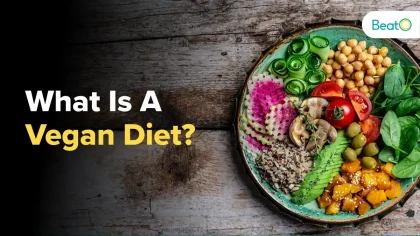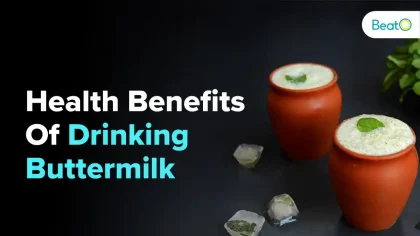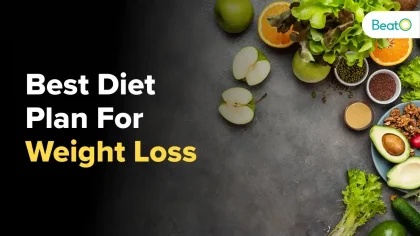Diet preferences vary for people around the globe. Some are non-vegetarians; others are vegetarians. And then there is another group that calls themselves vegans! The concept of veganism may be old, but it has gained significant popularity in recent years. More and more people are now adopting a vegan diet for health and personal reasons. But what exactly is included in a vegan diet?

In this write-up, we will cover details like what is vegan food and how it can help a person live a healthier life. Let’s start with the basics to help you understand this exclusive dietary concept.
Also Read: Try These 12 Best Vitamin D Foods For Vegans
What is Vegan Food?
The term ‘vegan’ was initially used by Donald Watson in 1944. He was a British woodworker who used this term to differentiate between vegetarians who consumed dairy and eggs and those who didn’t. But now, being a vegan who consumes only vegan foods is not just about eating a healthy diet. It is also a step towards saving the environment and curbing animal cruelty and exploitation.
Therefore, any food item that is entirely free from animal-derived ingredients falls into the category of vegan food. Though meat, fish, chicken, and eggs are clearly not vegan, dairy and honey also don’t belong to this category! In other words, we can say that vegan food strictly comprises only plant-based food items.
Key Components of Vegan Food
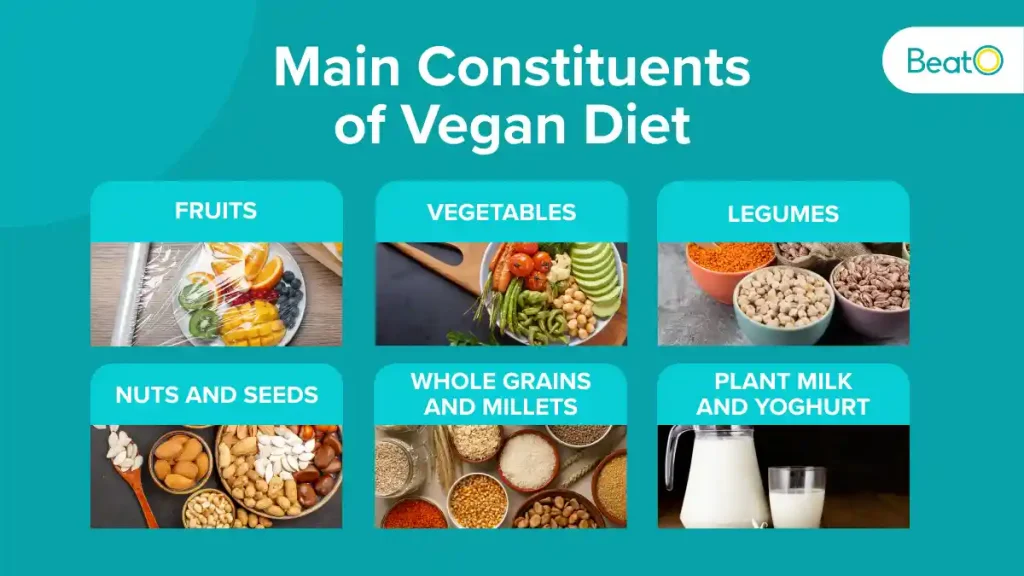
Now that you know what is vegan food and have understood vegan food meaning, let us talk about the specifics of vegan food. As vegans avoid several animal-based foods, they need to have a varied and nutritious diet so they don’t miss out on vital nutrients for the body.
Here is a breakdown of the different types of foods vegans must regularly include in their diet:
Fruits:
Apples, bananas, pears, berries, oranges, kiwi, and all other fruits are vegan and suitable to be incorporated into plant-based meals.
Vegetables:
Leafy greens, tomatoes, cucumbers, carrots, bell peppers, zucchini, eggplant, mushrooms, peas, potatoes, and other veggies are perfect for the vegan diet.
Also Read: 5 Best Vegan Indian Dishes You Must Try
Whole Grains and Cereals:
Foods like quinoa, brown rice, oats, barley, and millet are packed with nutrients and are perfect for providing energy to people following a vegan lifestyle.
Plant-Based Proteins:
Most people consume protein in the form of meat, fish, and poultry. But since these foods are not vegan-friendly, switching to plant-based alternatives such as soybeans, tofu, tempeh, beans, and lentils can fulfil the daily protein intake of an individual.
Nuts and Seeds:
Nuts like walnuts, peanuts, cashews, and almonds and their nut butters are good sources of plant-based healthy fats. In addition, seeds such as flaxseed, sunflower seeds, chia seeds, and sesame seeds are also vegan foods one must add to their diet.
Oils:
Extra virgin olive oil, sunflower oil, coconut oil, soybean oil, sesame oil, and peanut oil are ideal vegan choices for sautéing or drizzling on salads as a flavourful dressing.
Plant-Based Milk and Yoghurt:
Almond milk, coconut milk, oat milk, and rice milk are dairy-free alternatives for vegans. Then there are other food items like vegan cheese for pizza, creamy soy yoghurt for smoothies and delicious yoghurt parfait.
How Does Vegan Food Impact Our Health?
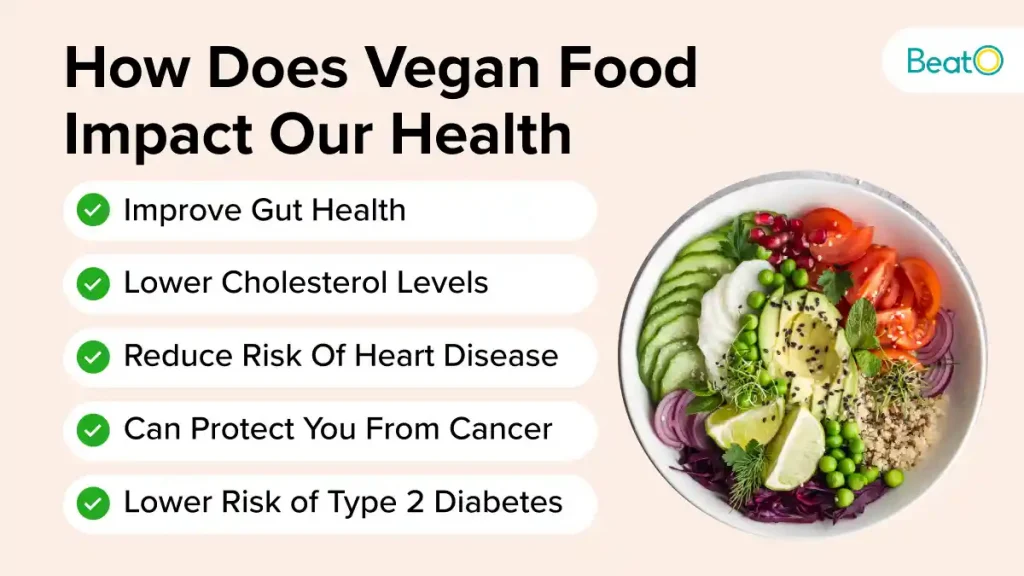
A vegan diet may seem complicated at first. But once you get it right, vegan foods will offer you a multitude of health advantages.
1. Eating vegan food can lower your cholesterol levels.
Animal-based foods are high in saturated fats and cholesterol and can increase the risk of heart disease. Because vegan foods contain more unsaturated fats, you have a better chance of controlling and even lowering your cholesterol levels.
Also Read: Vegan vs Vegetarian: Understanding The Differences And Benefits
2. It can reduce the risk of developing heart disease.
Vegan foods like whole grains, fruits, nuts, and vegetables have the power to reduce the risk of getting heart disease. As these foods help in reducing inflammation and lowering blood pressure, it has a positive impact on heart health.
3. Vegan food can protect you from cancer.
Many observational studies suggest that consuming a vegan diet can lower the overall risk of developing certain types of cancer, for example, colorectal cancer.
4. It can improve your gut health.
Dietary fibre is essential to aid digestion and maintain gut health. As vegan foods like fruits, vegetables, and whole grains are rich sources of dietary fibre, they support your digestive system and reduce problems related to the gut, such as bloating and constipation.
5. It can lower the risk of type 2 diabetes.
Healthy individuals who are on a vegan diet may have a lesser risk of developing type 2 diabetes. As vegan foods are rich in fibre, they improve insulin sensitivity and help regulate blood glucose levels.
6. Vegan food can help you manage your weight.
Eating a vegan diet can be beneficial to those who are looking to lose weight or maintain a healthy weight range. Usually, a plate full of vegan foods has fewer calories compared to one filled with regular food items that can include meat or diary products. For this reason, consuming a plant-based diet along with adequate exercise can support weight management.
Also Read:Unlocking the Potential: Is Beaten Rice Good for Diabetes?
Can Diabetics Follow a Vegan Diet?
There is no reason why diabetics cannot follow a vegan diet. Even the Academy of Nutrition and Dietetics considers a vegan diet fit for people at every stage of life. It is also believed to help in the treatment and prevention of diabetes.
Research states that a vegan diet can help individuals in weight management and improve insulin sensitivity. This in turn can regulate their blood sugar levels and keep them in a healthy range.
But as we always say, keep your doctor informed if you plan to make any drastic changes to your diet, like switching from a normal diet to a vegan diet.
Summing Up
Vegan foods are food items sourced from plants. People following veganism regularly consume vegan foods in their diet. These foods do not contain any animal-based ingredients and mostly include fruits, starchy and non-starchy vegetables, whole grains, nuts, and seeds.
Many people turn to veganism because they wish to improve their health. Others choose it as a lifestyle and give up animal-based products because they want to do their bit to save animals and the environment.
Learning what is vegan food is the first step to switching to a plant-based diet. Only when you understand the true vegan food meaning, will you be able to decide if this dietary choice is good for you and whether you are ready to bring this change to your lifestyle?
Also Read:7 Foods To Avoid Before Going To Bed
Disclaimer: The content of this article is compiled information from generic and public sources. It is in no way a substitute, suggestion, or advice for a qualified medical opinion. Always consult a specialist or your own doctor for more information. Beato App does not claim responsibility for this information.
Are you looking for the perfect glucometer to check your blood sugar level? Try out BeatO smartglucometerkit, affordable and easy to use.
Discover top-tier diabetes care with BeatO’s Chief Clinical Officer,Dr. Navneet Agarwal. His expertise in Diabetes ensures personalised guidance for overall health. Try out a smartglucometerand keep track of blood sugar levels now.

